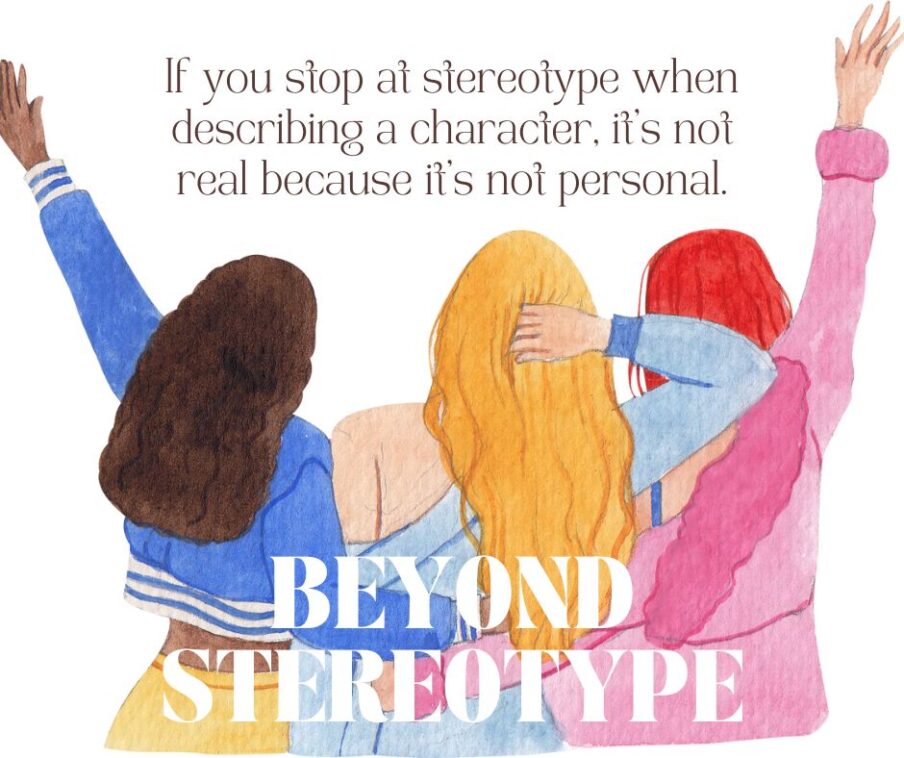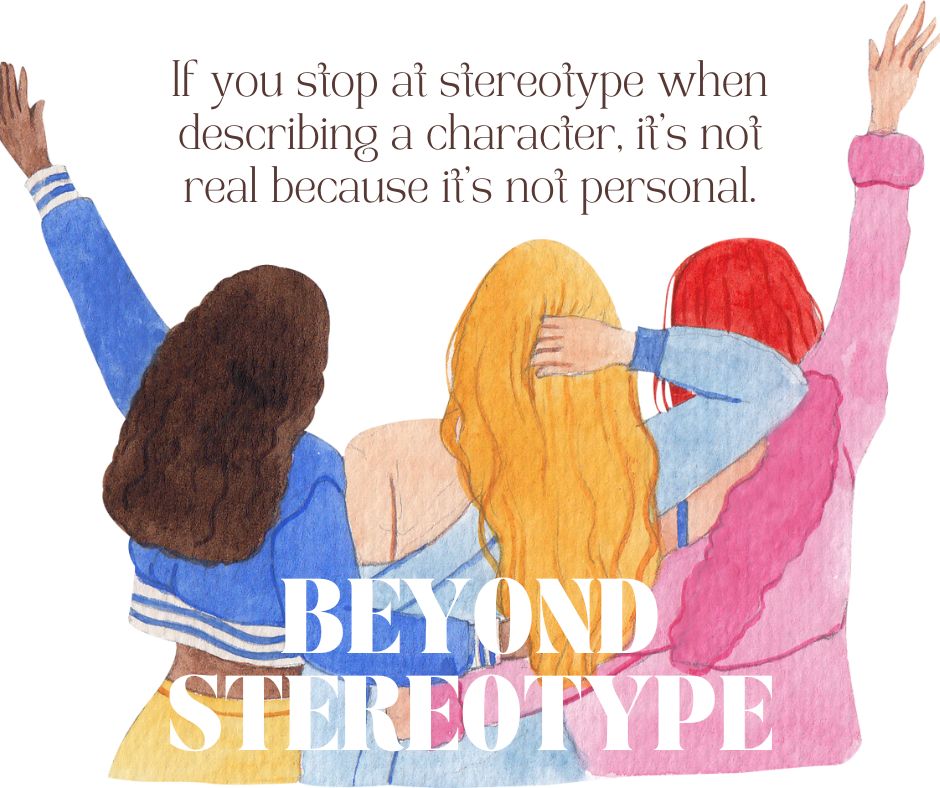by Angela Ruth Strong, @AngelaRStrong
As a flight attendant, I meet lots of characters. Often, they seem to fit a stereotype, but as a writer, I’ve been warned away from stereotypes, so I became curious about this and did some research.
An article in Psychology Today surprisingly explained that stereotypes are first, important for survival, and second, generally true. They are important for survival in situations like “stranger danger” where our brain needs to make quick judgements. And they are generally true in the way that we wouldn’t ask a child for advice or an elderly person to help move furniture.
Ignoring stereotypes in writing would be like forgetting to make extra coffee when working a flight to Seattle. Dumb.
However, there is a problem with stereotypes that uniquely pertains to writing a book, and that is how we all embrace beliefs that once helped us cope even after they become lies. This is your protagonist’s misbelief, and it stands in the way of their goal. For example, if a child doesn’t make lasting friendships because their family moves a lot, they might start to think friendships aren’t worth the effort. Such a belief protected them when they were young, but as an adult, it will keep them from connecting on every level.
Just as we need to take such a character deeper to find truth, we must also do so with character development. Generalization helps us better understand the world as a whole, but MomentousInstitute.org explains, “People don’t function solely as members of a group.” So as authors, we start broad and work our way in.
Consider my career. We are the clichéd to be alcoholics like on the TV show Flight Attendant. This is a genuine struggle that airlines are working to combat, but if you stop there in your description, you’re not describing an actual character. It’s not real because it’s not personal.
Of the flight attendants I know, there are a lot more clichés. There’s:

The Handsome Gay Guy
The Vegan Redhead
The Former Cop with a Gray Beard
The Young Man Who Looks Like Harry Potter and Still Loves Legos
The Vietnamese Refugee
Every one of them could be drawn as a caricature, but that would only make them 2D. Let’s better get to know my Vietnamese coworker to watch her come to life.
Linda joked about the stereotype that came with being Asian. After moving to Montana as a child, all the boys in her elementary school wanted to fight her, figuring she knew martial arts. She said, “Unfortunately for them, I did.” As a tiny little girl, she got away with kicking their butts too. Then she grew up to join the military and win crowns as a beauty queen. But she ended up living in her car at the airport parking lot when her husband abused her. Talk about deep. We cried together on our shuttle ride to the hotel as she told her story of becoming a Christian.
I travel a lot and get to know new flight attendants like this on every trip. By asking questions rather than making assumptions, I hear their backstories and grow to understand their motivations. I learn something from each of them.
You can bring your characters to life in the same way. Start with what’s expected, thus creating opportunity for the unexpected. Go beyond stereotypes by giving every character a distinct backstory, making their motivations relatable, and having them challenge each other and/or the reader.
Meeting characters is honestly one of my favorite things about flying. And writing. People are unique and thought-provoking. If your characters stay stuck in stereotype, maybe you’ve got your own misbeliefs you need to overcome. Because you’re a character too.
In a world full of happily-ever-after love, Meri Newberg feels like the last young woman on the planet to be single, at least in her Christian friend group. So when she’s handed a strange present at the latest wedding–a 1950s magazine article of “ways to get a husband”–she decides there’s nothing to lose by trying out its advice. After all, she can’t get any more single, can she?
Her brother’s roommate sees the whole thing as a great opportunity. Not to fall in love–Kai Kamaka has no interest in the effort a serious relationship takes. No, this is a career jump start. He talks Meri into letting him film every silly husband-catching attempt for a new online show. If it goes viral, his career as a cameraman will be made.
When Meri Me debuts, it’s an instant hit. People love watching her lasso men on street corners, drop handkerchiefs for unsuspecting potential beaus, and otherwise embarrass herself in pursuit of true love. But the longer this game goes on, the less sure Kai is that he wants Meri to snag anyone but him. The only problem is that he may not be the kind of husband material she’s looking for . . .
Angela Ruth Strong sold her first Christian romance novel in 2009 then quit writing romance when her husband left her. Ten years later, God has shown her the true meaning of love, and there’s nothing else she’d rather write about. Her books have since earned TOP PICK in Romantic Times, been optioned for film, won the Cascade Award, and been Amazon best-sellers. She also writes non-fiction for SpiritLed Woman. To help aspiring authors, she started IDAhope Writers where she lives in Idaho, and she teaches as an expert online at WRITE THAT BOOK.




Comments 2
What about secondary characters who are small mirrors reflecting or challenging your main character? You aren’t telling their story, not spending much time on them–is it possible to keep them from being a stereotype?
Yes. Have them fulfill multiple functions in the story so we see their different layers. For example, have the barista also singing on stage at the jazz club. Or have the airhead character offer profound advice. Real life is full of the unexpected and ironic.